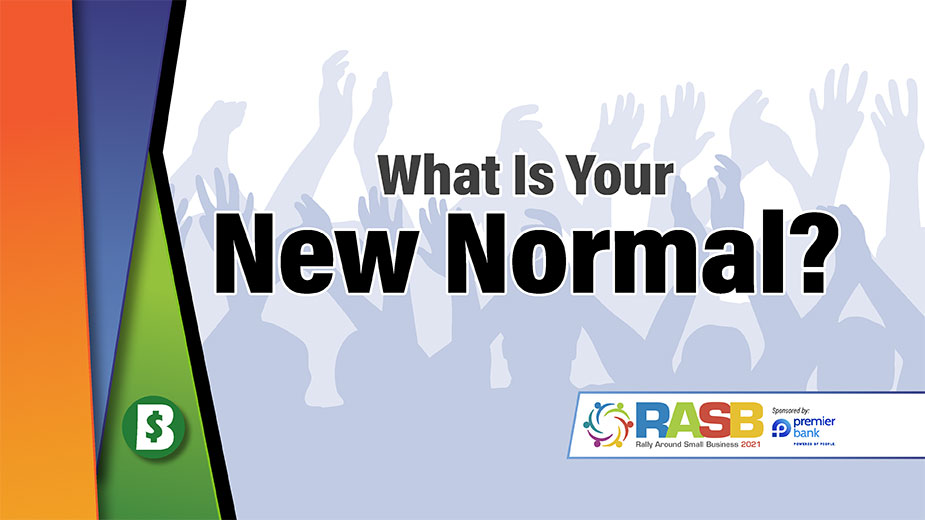YOUNGSTOWN, Ohio – The health orders coming to a close June 2 in Ohio are allowing some area businesses to breathe a sigh of relief because adapting to remote interactions wasn’t always a simple transaction.
During the month of May, as part of our Rally Around Small Business campaign, The Business Journal asked company owners to tell us their “new normal.”
What follows is information taken from some of those responses. You can find more at BusinessJournalDaily.com/category/rally-new-normal.
For Amber Stiles-Bodnar Consulting, the counseling office at 2996 state Route 5 in Cortland had to switch to about an even split between in-person and virtual appointments. And with its waiting room closed, the office had to stagger appointments to cut down on cross traffic, says Stiles-Bodnar, the clinical director.
What’s more, the pandemic itself created an “acute traumatic stress response” in the United States and the world, she says.
As a trauma-focused mental health organization, the counseling office serves clients ranging from children having difficulties at home to military personnel to first- responders and hospital staff and their families “who are on the frontlines of this ‘war,’ ” she says.
“We provide mental health services to all in need of mental and emotional help,” Stiles-Bodnar says. “We have a very diverse client base with many who cannot have a lapse in treatment but are finding the current situation is bringing on stressful emotions.”
Office staff responsibilities changed to a staggered work shift and remote work when possible. In March 2020, the office introduced teletherapy for clients who have access to computers and WiFi.
“As always, our clients’ health and safety are our priority in providing mental health services,” Stiles-Bodnar says. “We will continue to provide services for those clients who look to us for mental health guidance during this stressful time, both virtually and in person.”
Diane Laudo, owner and operator of The Curiosity Shop at 584 E. Main St., Canfield, says operating at 40% of the company’s pre-pandemic figure, the “new normal” is not normal.
“I would hate to accept these levels as normal,” Laudo says. “With personally working more hours/days, and using my employees less, the sales just don’t warrant the payroll.”
Like most small businesses in the region, BOST Benefits “went through a shock period,” says CEO Bradley Kauffman. With operations in multiple states, BOST had to navigate the different guidelines and mandates of each state. What used to be “normal” is now “history and how we used to do things,” he says.
The employee benefit solutions and administration company now focuses its support team and advisers more on customer service and client retention.
“The shock of the pandemic made it clear we needed to put on hold any growth plans and divert all our resources to supporting our small- business clients,” Kauffman says. “They had so many challenges of their own. So we wanted to make sure they knew we were here for whatever they needed.”
BOST’s business model was built on face-to-face interaction with clients, using technology for occasional virtual meetings. Over the last year, most communication has been virtual, he says, with occasional requests for face-to-face.
The New Castle, Pa.-based firm focuses on medical health plans, HR advising and benefits education to employees at their workplace. Its Medicare division helps seniors understand their health plan options.
“Our new normal has been keeping up our standard of service and education to our clients with a virtual mindset,” Kauffman says. “Some clients and prospects allow you on site, some do not. Our Medicare offices have remained open and safe for seniors to visit if they prefer a face-to-face appointment.”
Businesses that serve customers at their homes have also changed the way they do things. From a sales standpoint, The Bee Man is back to normal after business picked up during the pandemic because people were home more often, says owner Travis Watson. That also required the company to adjust to COVID-19 protocols, such as wearing masks and social distancing.
“We used to start every job with a handshake, which we can’t do anymore,” he says. “Otherwise, it’s much the same. We always went to people’s houses. So we never had to worry about closing physical locations.”
Stronger demand for outside dining prompted Carmella’s Cafe at 850 E. Western Reserve Road, Boardman, to expand its patio for warmer weather, says manager Lisa Kelso. It also means perfecting the takeout process, which includes staffing appropriately and managing the kitchen to accommodate both in-person and takeout customers.
“We’re trying to get back to normal and are inching our way there,” Kelso says.
The “new normal” also requires a stronger emphasis on employee retention, she says. As business starts to come back to levels restaurants were used to before the pandemic, many area restaurants are struggling to find staff to meet the need.
“It’s a competitive market right now for servers and kitchen staff, so our first priority is to take care of the ones we have,” Kelso says.
